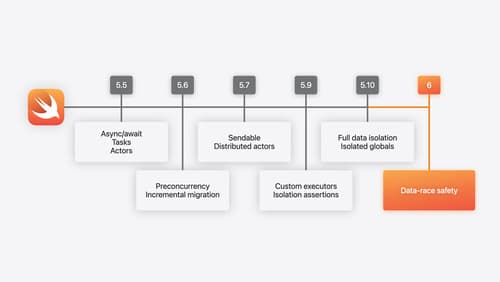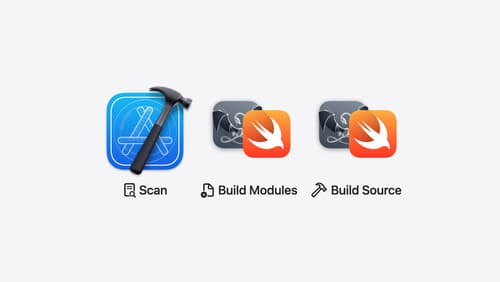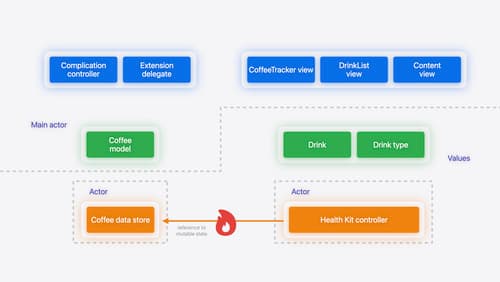swift build process
Asked on 2024-08-25
2 searches
The Swift build process has seen several improvements, particularly with the introduction of explicitly built modules. This change enhances parallelism, provides better diagnostics, and speeds up debugging without requiring changes to your code. Explicitly built modules transform implicit build steps into explicit ones, allowing module builds to be performed in parallel and making them visible in the build log. This results in more predictable and reliable builds, and the debugger can share binary modules with the build, leading to faster debugging.
In Xcode 16, explicit modules are enabled by default for C and Objective-C, while for Swift, you need to opt-in through the build settings. This new approach splits the processing of each compilation unit into three phases: scanning, building modules, and building the original code. These phases are now clearly represented in the build log, providing a detailed breakdown of the build process and helping to optimize it.
For more detailed information, you can refer to the session Demystify explicitly built modules (08:37) and What’s new in Xcode 16 (06:26).

What’s new in Swift
Join us for an update on Swift. We’ll briefly go through a history of Swift over the past decade, and show you how the community has grown through workgroups, expanded the package ecosystem, and increased platform support. We’ll introduce you to a new language mode that achieves data-race safety by default, and a language subset that lets you run Swift on highly constrained systems. We’ll also explore some language updates including noncopyable types, typed throws, and improved C++ interoperability.

Demystify explicitly built modules
Explore how builds are changing in Xcode 16 with explicitly built modules. Discover how modules are used to build your code, how explicitly built modules improve transparency in compilation tasks, and how you can optimize your build by sharing modules across targets.

Migrate your app to Swift 6
Experience Swift 6 migration in action as we update an existing sample app. Learn how to migrate incrementally, module by module, and how the compiler helps you identify code that’s at risk of data races. Discover different techniques for ensuring clear isolation boundaries and eliminating concurrent access to shared mutable state.
